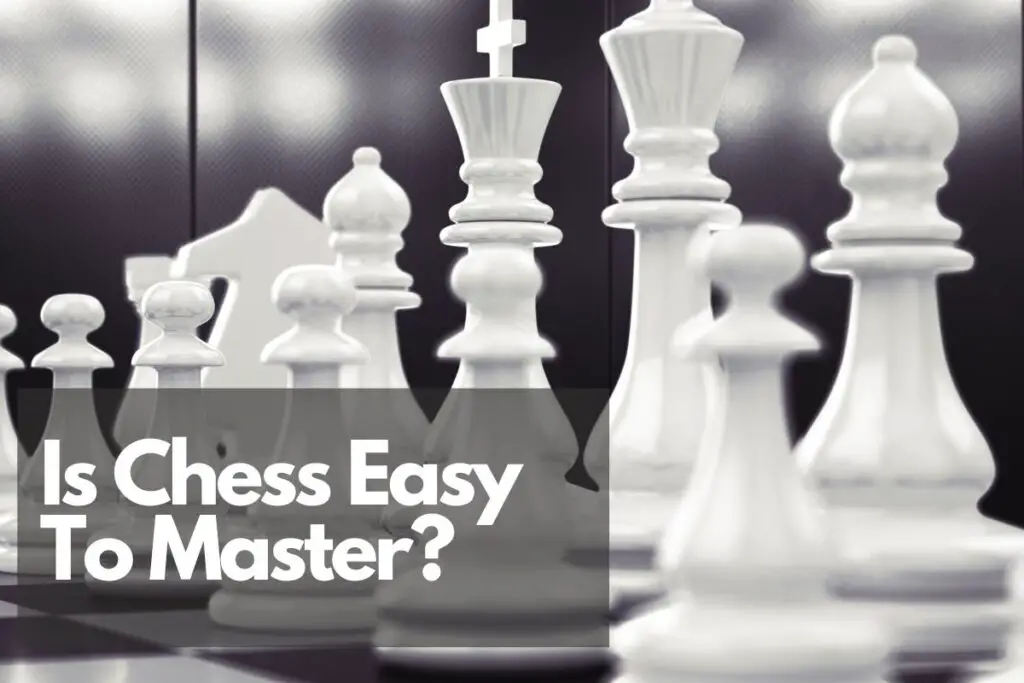Chess is widely considered one of the most challenging games to master. It involves a wide range of pieces, each with its individual movement, leading to infinite possibilities within a single game. The game requires a thorough understanding of rules, strategies, and tactics, making it harder than most board games.
The Complexity of Chess
One of the reasons why chess is so difficult to master is its complexity. The game has six different types of pieces, each with its unique movement. The pieces can move in different directions, and some can move in multiple directions. Additionally, the game has a wide range of possible moves, making it challenging to predict an opponent’s next move.
The Importance of Strategy
Another reason why chess is challenging is that it requires a deep understanding of strategy. Players must be able to think several moves ahead and anticipate their opponent’s moves. They must also be able to recognize patterns and understand the strengths and weaknesses of each piece.
The Possibility of Improvement
While chess may be difficult to master, it is achievable with commitment and effort. With dedicated practice and regular play, it is possible to improve at chess.
The Importance of Practice
One of the keys to improving at chess is practice. Regular play helps players develop their skills and become more familiar with the game’s strategies and tactics. Additionally, players can study the games of master players to learn new techniques and strategies.
The Role of Coaching
Another way to improve at chess is to work with a coach. A coach can help players identify their strengths and weaknesses and develop a personalized training plan. They can also provide feedback on a player’s gameplay and offer advice on how to improve.
The Benefits of Persistence
Finally, it’s important to remember that mastering chess takes time and persistence. Players should not get discouraged if they don’t see immediate results.
Instead, they should focus on making steady progress and learning from their mistakes. With dedication and effort, anyone can improve at chess and work towards mastering the game.
How long does it take to become proficient in chess?
Becoming proficient in chess depends on various factors, such as when you learned the game, your age, interest, competitive drive, time available to play, access to over-the-board play, natural talent, and more. It is difficult to provide a specific time frame for becoming proficient, as individual progress varies. However, some general guidelines can be observed:
- It takes about 3-4 months for an absolute beginner to reach a rating of 1200-1300, given good instruction and hard work
- To reach a 1000 rating, a beginner can expect to improve within 3-6 months by dedicating a couple of hours per day
- It takes 2-3 years of practicing your opening repertoire to become competent at playing the openings in your repertoire from both the White and Black side
- Some players have reported improving from 800 to 1500 in about a year
Keep in mind that these time frames are approximate and can vary depending on individual circumstances.
To improve your chess skills, it is essential to practice regularly, focus on learning and understanding the game, and analyze your games to identify areas for improvement.
What are some resources for learning chess?
There are many resources available for learning chess, including books, online courses, websites, and videos. Here are some examples:
- Books: “The Complete Idiot’s Guide to Chess” by GM Wolf, “Pandolfini’s Endgame Course” by Bruce Pandolfini, “The ABC’s of Chess” and “Weapons of Chess” by Bruce Pandolfini.
- Online courses: Udemy’s “Best Chess Course for Complete Beginners,” Chess University’s “Intro To Chess Crash Course,” and “Chess course from beginner to master level” by NM Robert Ramirez.
- Websites: Chess.com, Lichess.org, Chessable, and Chess Tempo.
- Videos: Chess Club of St. Louis channel, International Master John Bartholomew channel, and “Everything You Need to Know About Chess” by Chess.com.
These resources offer a range of materials for beginners and advanced players, including lessons, puzzles, games, and analysis tools. It is important to find resources that suit your learning style and goals.
What are some common mistakes beginners make in chess
Beginners in chess often make several mistakes that can hinder their progress. Here are some common mistakes beginners make in chess:
- Playing too many moves with pawns in the opening
- Trading pieces without considering the consequences
- Not following opening principles, such as controlling the center, developing minor pieces, and castling early
- Making automatic moves without considering the position
- Moving the queen out too early
- Forgetting to protect their pieces
- Not spending enough time studying checkmating patterns
- Playing too much blitz chess
By avoiding these mistakes and focusing on learning the fundamentals of chess, beginners can improve their game and progress to higher levels.
Conclusion
In conclusion, while chess may be difficult to master, it is achievable with commitment and effort. The game’s complexity and emphasis on strategy make it challenging, but regular practice and coaching can help players improve. With persistence and dedication, anyone can work towards mastering the game of chess.


